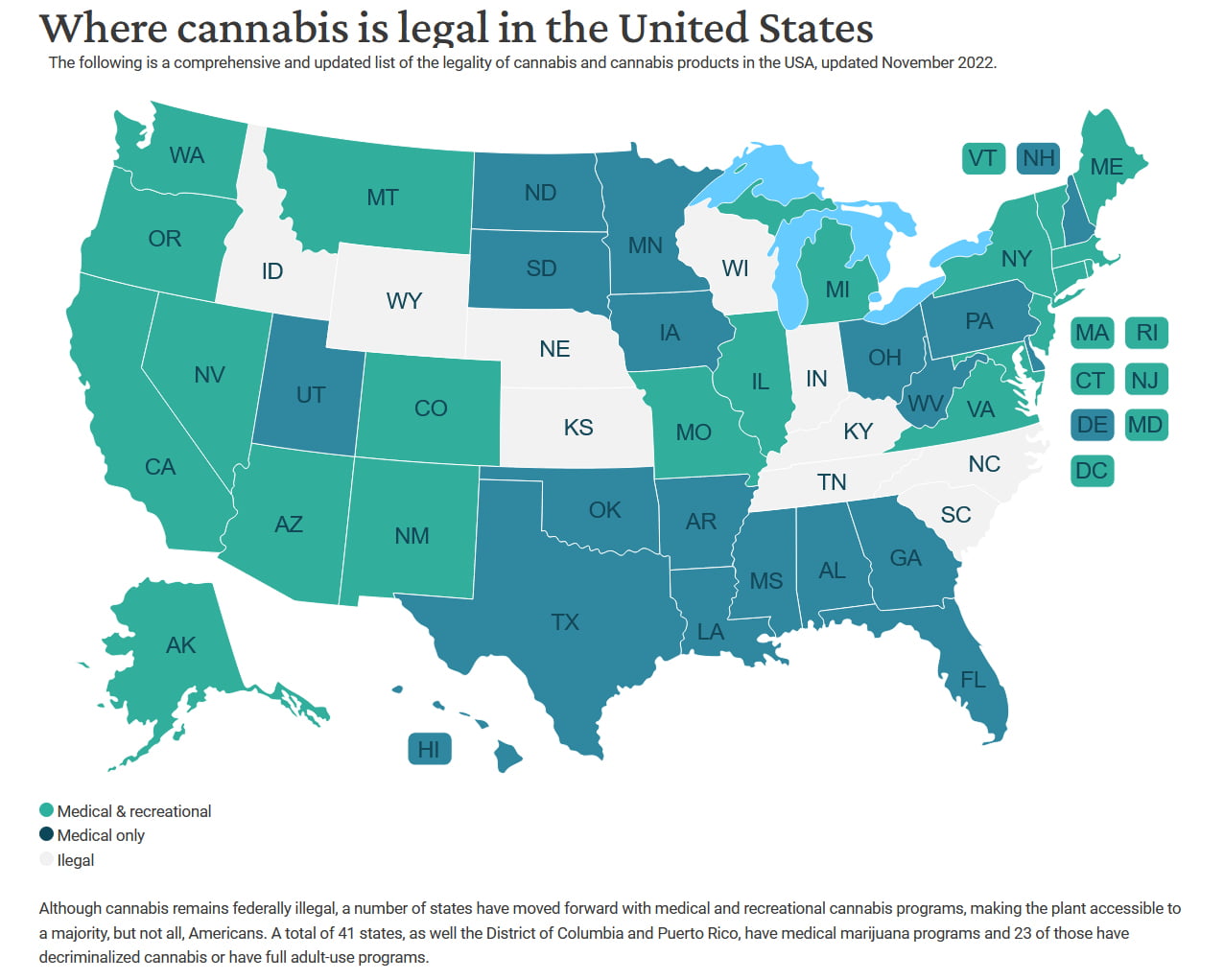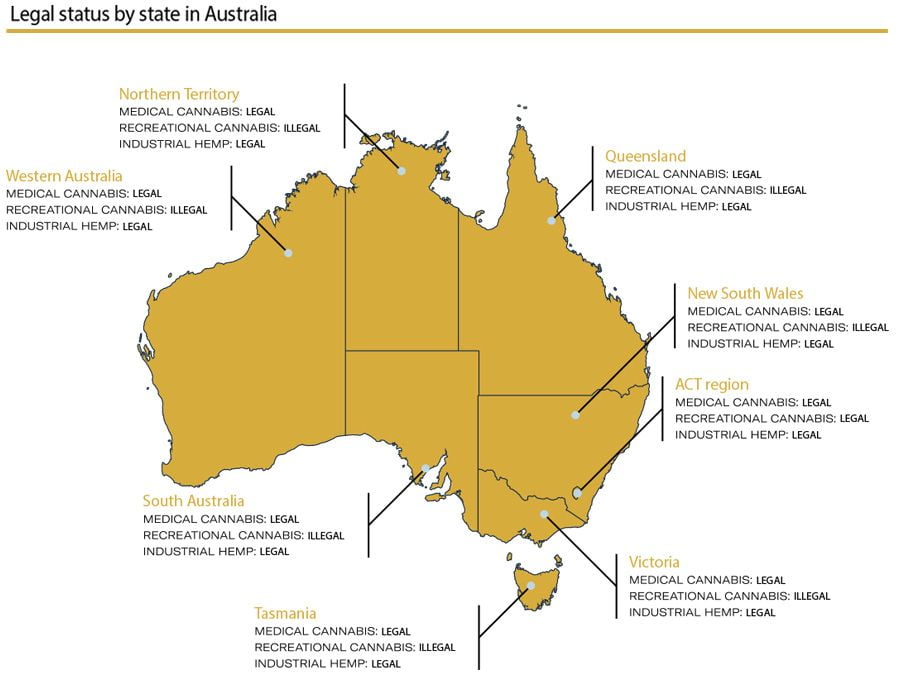To be or not to be…legalized
Globally, the commercialization of a legalized cannabis industry has seen many changes in the land usage space. Our planet is increasingly closely connected so that legal changes in one jurisdiction cause changes in businesses in other countries. The cannabis industry is a classic example with the Canadian government’s approach to legalization of cannabis without stigma seeing the industry find a home in the center of capital in the country.

Projects RH has provided Project Management services in the industry in Australia, Florida, Colombia, and Canada.
One of the major reasons for the growth of the cannabis industry in Canada has been the wide variety of approaches to regulation demonstrated amongst the United States state governments, and the federal government not really wanting to see the use of cannabis for recreational purposes and only having to limited powers to block the industry within state borders. They are limited to trade and commerce and the second interstate banking.
On a global basis the products of the cannabis are:
- Flower
- Oil
- Leaves
- Seeds
The flower and the oil can and are used to produce human and animal food supplements.

From home-grown to full-blown industry
In the 2020s we are seeing a global trend towards legalization of cannabis for personal use and in foods on a global basis. The key arguments involved the same views which led to the end of the prohibition of alcohol in the United States and in other countries and to more liberal access to alcohol. Regrettably, the key arguments in United States are not about community benefits or the economy but unveiled the role of the State, an area this all there is no expert on.
We have seen around the world that prohibition of things underpins a business model which promotes community enterprise something its government would not want to have. It leads to development of gangs and specialized police forces to chase these gangs.
In a liberal democracy one would expect the views of John Stuart Mill that a government should not stop an individual from doing something providing they do not cause direct harm to others. It is generally accepted that the burden of proof lies with those who would seek to impose a prohibition. What we have seen particularly since the year 2000 is the community no longer accept that the burden of proof can be sustained. There are many in the community who would call upon the legalization of cannabis.
Historically, communities have been concerned that when the cultivation of cannabis was illegal, that a legal industry grew up in many parts of the world, people would find ways grow small amounts for their own recreational use. During this period, cannabis was not widely cultivated to produce medical and health supplements all the products which we could be pre-processed into creams and lotions. Today the medical and health benefits of cannabis are widely understood, and the industry has increasing community support.

Return-to-health business
The global community is looking for more natural painkillers and health supplements which are processed and marketed in much the same way as health food products were sold to our parents from health food shops. There is a genuine yearning to return to healthy products (largely unprocessed) in our diets and in our medicines. This allows the formula drugs to be reserved for when we really need them and for us not to build up a resistance so that they are effective when required.
More importantly, many cannabis products do not require any mind-altering substances be in the product rather they are focused on the health-giving qualities.
Today governments are looking for revenue
What is occurring around the world is that governments are looking to expand their revenue base as they seek to fund the increasing expectations of the community. The taxing of products such as tobacco and alcohol is now being added to other concerning unhealthy products such as sugar and no doubt some forms of cannabis. The other side of the same argument is that the main sources of benefits from cannabis -being nutritional, cosmetic and pain reliever- reduce expenses faced by the medical system and raise taxes directly on the products themselves and by sales tax.
It is somewhat ironic that the United States has a special trade convention with the Republic of Colombia which allows for improved cannabis products including those with THCs to be exported to the US under US federal regulations. The irony lies in the fact that the banking of proceeds from the sale of these products itself may be a federal offense as they are engaging in interstate commerce; however, the proceeds are transferred electronically to Canada this is said by commentators not be the case!
The pendulum has swung
Many countries have now recognized that the benefits of cannabis outweigh the issues associated with its consumption in the community. In short, the pendulum has swung from the benefits line with the being illegal to being the benefits line with it being legal.
Making cannabis legal allows it to be standardized and controlled, more importantly in allows for it to be taxed and taxed differentially.
In 2023 the community expectation is that people who use small amounts of cannabis should not be treated as hardened criminals, and that most people who use cannabis derivatives in the form of health and beauty products with no THCs are in fact improving their health and reducing their dependence on the community’s health system. Given that most of these products at least have sales tax the use of these products is contributing to the community.
The people who use cannabis products with high THCs are effectively no different to people who consume large amounts of alcohol. Part of the price of living in free societies is that people can make their own choices and we must support their right to do as they believe in, providing it does not significantly harm community.
In 2023 and beyond the pendulum has swung.[4]
By Paul Raftery – CEO, Projects RH, based in Sydney – March 2023
If you have any questions, please call +61 418 486 015.
———————————————————————-
[1] Source: https://vividmaps.com/cannabis-legality/
[2] Source: https://cannigma.com/us-states-where-cannabis-is-legal/
[3] Source: https://www.consultancy.com.au/news/1887/australias-legal-cannabis-market-blooms-to-15-billion-by-2025
[4] Source, Creighon, A.; “America’s rush to legalise cannabis a bit of a downer”, The Weekend Australian, 19 November, 2022, p. 21 https://www.theaustralian.com.au/inquirer/americas-rush-to-legalise-cannabis-a-bit-of-a-downer/news-story/d3dfc2f1d4a2f326cc450519a9f05574

